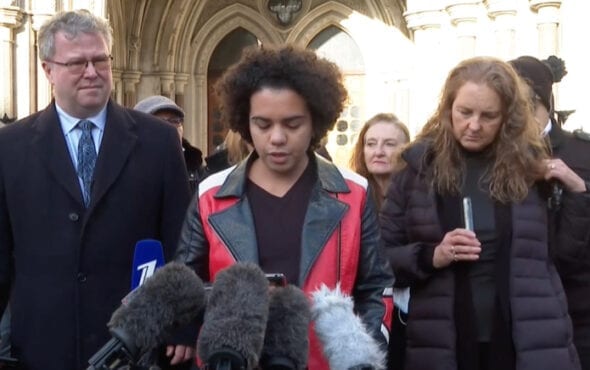
Three High Court judges remain “doubtful” that transgender youth will be able to provide competent consent for prescribed clinical treatment.
The High Court has ruled that children under the age of 16 considering gender reassignment are ‘unlikely’ to be mature enough to provide consent and fully understand the “the long-term risks and consequences” of undergoing medical treatment.
Cases involving older teenagers, such as under 18 year-olds, may also need to consult the courts for authorisation for medical intervention.
The case was brought against Tavistock and Portman NHS Trust, which said it was “disappointed by today’s judgement” and have agreed to suspend new referrals.
A spokesperson for the Tavistock and Portman NHS Foundation Trust said: “Our first duty is to our patients, particularly those currently receiving hormone blocking treatment, and we are working with our partners, University College London Hospitals NHS Foundation Trust and Leeds Teaching Hospitals NHS Trust, to provide support for patients concerned about the impact on their care.”
The NHS Foundation Trust is seeking permission to appeal the judgment and will be supporting a review commissioned by NHS England, led by Dr Hilary Cass.
The case in question was brought forward by Keira Bell, a 23-year-old woman, who began taking puberty blockers aged 16 before detransitioning, and a mother of a 15-year-old teenager who is waiting to receive treatment.
Dame Victoria Sharp, president of the Queen’s Bench Division of the High Court, explained that trans under-16’s must be able to give “valid consent” to puberty blockers, which includes “the long-term risks and consequences” of puberty blockers and hormone replacement therapy (HRT) in their ruling decision.
“It is highly unlikely that a child aged 13 or under would be competent to give consent to the administration of puberty blockers,” the judges added. “It is doubtful that a child aged 14 or 15 could understand and weigh the long-term risks and consequences of the administration of puberty blockers.”
Sharp elaborated further: “The vast majority of patients taking puberty blocking drugs proceed to taking cross-sex hormones,” which the suggests the young patients are on a “pathway to much greater medical intervention.”
British charity Mermaids has called the High Court ruling a “devastating blow” to trans youth and brought on “irreparable damage to young trans people in England and Wales.”
BREAKING: High Court ruling deals a potentially devastating blow to trans under 16s seeking access to life-saving puberty blockers. We will respond in full and expect an appeal from GIDS. This is a betrayal of trans young people. The summary judgment in full: pic.twitter.com/0XMjc9M84k
— Mermaids (@Mermaids_Gender) December 1, 2020
Suzie Green, CEO of Mermaids, has offered a statement on the ruling: “In the wake of this judgment, hundreds of families are telling us the impact it will have on their children. I only wish the judges involved had actually talked to some of the young people affected by their decision. They were offered such an opportunity but refused.
“They should have listened to the voices of older trans people who never had the opportunity to access puberty blockers, and desperately wish they could have. They should talk to the young people on a 2-year-plus waiting list who have now had hope ripped away from them.
“We are seeing panic, desperation and distress on our helpline. This is an unforgivable and shameful betrayal of young people’s rights to autonomy over their own bodies and we are deeply concerned about the impact it will have in the months and years to come.”
Lui Asquith, from the trans children’s charity Mermaids, has said: ‘It’s frankly a potential catastrophe for trans young people across the country and it cannot be exaggerated the impact that this might have, not only on the population of trans young people that require hormone blockers, but it may potentially open the floodgates towards other questions around bodily autonomy and who has the right to govern their own body.”



